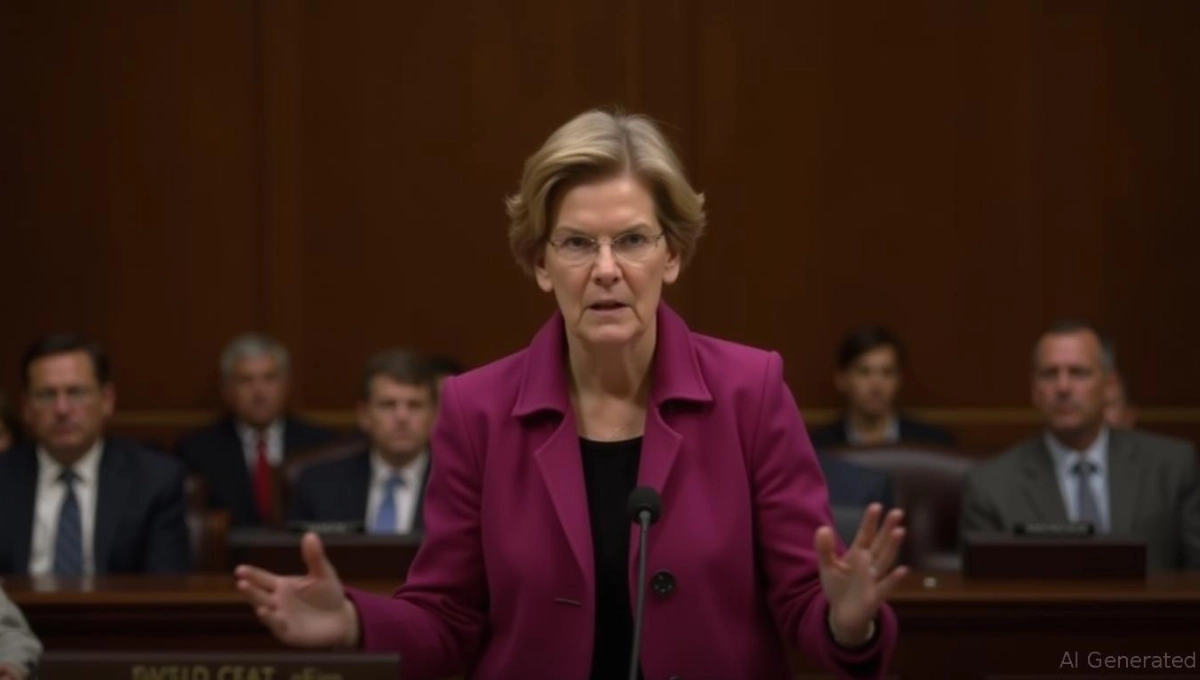Senator Elizabeth Warren has strongly called for stricter federal oversight of the cryptocurrency industry, emphasizing the urgent need to prevent economic risks, corruption, and political conflicts of interest tied to the current regulatory shortcomings. Her call comes amid growing concerns about the crypto sector’s rapid expansion and its increasing influence on financial markets and public policy.
Context and Criticism of Current Crypto Regulation
Warren criticizes the existing regulatory framework for being “weak” and overly influenced by the crypto industry’s lobbying efforts. In recent public statements and interviews, including one on MSNBC in August 2025, she argued that these lax regulations could destabilize the U.S. economy and facilitate illicit activities. According to her, many of the recent legislative proposals, such as the GENIUS Act and the CLARITY Act, appear crafted to benefit major crypto firms rather than protect public interests. These bills, she warns, could allow big corporations to skirt the Securities and Exchange Commission (SEC) oversight by digitizing their operations under lax rules, thereby creating loopholes that threaten market integrity and consumer safety.
Warren also highlights how some of these regulatory relaxations may be exploited for political or personal gain, particularly pointing to the involvement of high-profile political figures. She has voiced repeated scrutiny over former President Donald Trump’s crypto-related ventures, including his memecoin $TRUMP and stablecoin projects linked to his family’s businesses. Warren asserts these ventures may create conflicts of interest and political corruption, noting that rules should prevent elected officials from holding or trading cryptocurrencies to avoid such conflicts.
Core Proposals and Principles
To address these issues, Warren outlined a comprehensive reform agenda focused on what she describes as “five core principles” aimed at tightening crypto oversight:
- Align crypto regulations firmly under the SEC’s authority to ensure consistent application of securities laws to digital assets.
- Implement strict anti-money laundering (AML) compliance to prevent the use of cryptocurrencies for illicit activities like terrorism financing and drug trafficking.
- Ban elected officials from trading or holding crypto assets to eliminate conflicts of interest.
- Enforce strong transparency and disclosure requirements for crypto firms and government officials involved with digital assets.
- Prevent major technology companies, such as Meta (formerly Facebook), from issuing stablecoins, due to risks around privacy and financial stability.
Warren’s framework stresses that rules should be developed and enforced by Congress and independent regulatory bodies, not by industry groups that might prioritize profit over public protection.
Implications for Economic Stability and Consumer Protection
Warren warns that failing to regulate the crypto sector robustly could cause significant economic instability. The lack of clear safeguards and enforcement mechanisms potentially exposes consumers to volatile crypto markets, fraud, and financial losses. Moreover, she argues that continued deregulation could harm the broader U.S. financial system by undermining trust and enabling systemic risks.
Her advocacy is part of a broader push among lawmakers to implement systemic safeguards after a series of high-profile crypto market collapses and scandals. Warren and other critics contend that effective regulation must focus on consumer protection, financial transparency, and preventing the crypto sector from becoming a tool for corruption or criminal abuse.
Political Dimension and Regulatory Capture Concerns
A significant part of Warren’s campaign is to challenge what she sees as regulatory capture, where industry insiders and powerful corporate interests shape laws to their advantage. She accuses certain lawmakers, including Trump-era officials, of promoting industry-friendly measures that weaken enforcement agencies and allow crypto to operate with minimal oversight.
She has explicitly criticized the Trump administration’s executive orders that advanced crypto adoption, including conditioning retirement accounts to invest in digital assets and endorsing government-held crypto stockpiles. Warren argues that such moves, without robust regulatory guardrails, risk “supercharging” corruption and putting the American economy at risk.
Legislative Developments and Industry Response
The calls for reform occur amid ongoing legislative actions in the U.S. House of Representatives, which recently passed three notable crypto-related bills in July 2025: the GENIUS Stablecoin Act, the Digital Asset Market Clarity (CLARITY) Act, and the Anti-CBDC Surveillance State Act. These represent a coordinated effort to provide clearer regulations for digital assets after years of fragmentation and opposition.
However, Warren remains critical of these laws, viewing them as favoring the largest crypto players while failing to impose adequate consumer protections or prevent conflicts of interest. She advocates for more stringent legislative measures that would impose mandatory compliance, robust enforcement, and explicit bans on political figures’ involvement in the sector.
Some regulatory officials acknowledge the validity of Warren’s concerns and consider her proposals constructive in balancing innovation with necessary oversight. Yet, the crypto industry and some pro-crypto lawmakers argue that too much regulation could stifle technological progress and economic growth.
Summary
Senator Elizabeth Warren’s renewed push for rigorous cryptocurrency regulation underscores growing apprehensions about the risks posed by unregulated digital assets to the financial system, political integrity, and consumer safety. Her proposals seek to realign oversight under trusted regulators, increase transparency, ban elected officials from crypto dealings to prevent corruption, and restrict stablecoin issuance by tech giants.
Warren’s stance serves as a counterweight to the influential crypto lobby and some deregulatory measures seen in recent legislation and executive actions. Her campaign reflects a broader demand for clear, enforceable rules that protect the public interest without completely halting the crypto market’s development.
As cryptocurrency becomes increasingly woven into the fabric of mainstream finance, Warren’s advocacy highlights the challenges lawmakers face in balancing innovation with the need for accountability and risk management to safeguard economic stability and prevent corruption at the highest levels of government.


